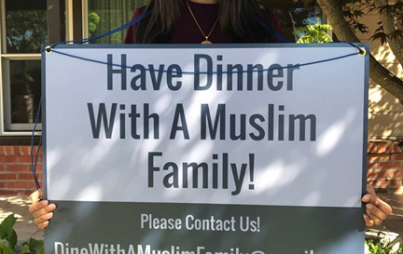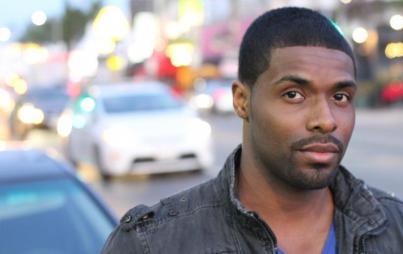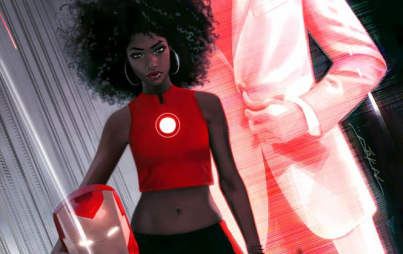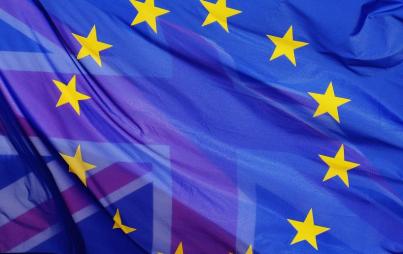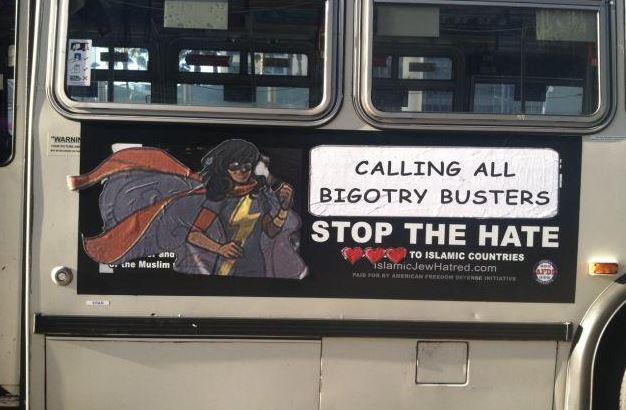
Credit: The Mary Sue
You don't have to be all that smart to realize that superheroes are kind of dumb. Superhero stories generally involve massively muscled good guys hitting massively muscled bad guys until the bad guys can't take being hit anymore, at which point, supposedly, good wins. Righteousness is demonstrated through superior force; iniquity consists of robbing banks or (for the more ambitious bad guy) of trying to conquer the world while referring to oneself in the third person ("How dare you thwart the schemes of . . . Dr. Master EvilDoom?!") At best, superheroes are goofy and simplistic. At worst, the worship of power and vigilante justice seems uncomfortably like an ideological appeal to law-and-order fascism.
Either way, it's hard not to feel like the current superhero obsession has gone on long enough, and then too long, and then on beyond even that. We get it: Supergood beats superbad. Can we move on now?
Even a skeptic like me, though, was delighted at the recent appearance of a particular superhero on the streets of our nation. Earlier this week, San Francisco buses began running ads from the American Freedom Defense Initiative—a "patriotic" organization devoted to spreading Islamophobia. The ads compared Muslims to Hitler. "Islamic Jew-Hatred: It's in the Quran," the signs blare next to a picture of Adolf himself. "Stop the hate!"
Why on earth San Francisco agreed to run these ads in the first place is a question for another day. The city's travelers, though, took matters into their own hands. Super-vandals fighting for right and good have been covering the image of Hitler over with a picture of the superhero Ms. Marvel. They also altered the text, which now reads: "Calling all bigotry busters: Stop the Hate."
Ms. Marvel isn't just any superhero. She's a Muslim—her secret identity is Kamala Khan, a friendly 16-year-old Pakistani-American from New Jersey, in a comic written by G. Willow Wilson (a Muslim herself) and drawn by Adrian Alphona. Some superheroes are angst-ridden and violent and grim and dark, but Kamala is fundamentally kind. She doesn't get into supeheroing because her parents and/or Uncle Ben were killed by violent criminals. She gets into superheroing because she likes helping people out. Her adventures are surprisingly non-violent too—she's upset when she has to kill a giant alligator.
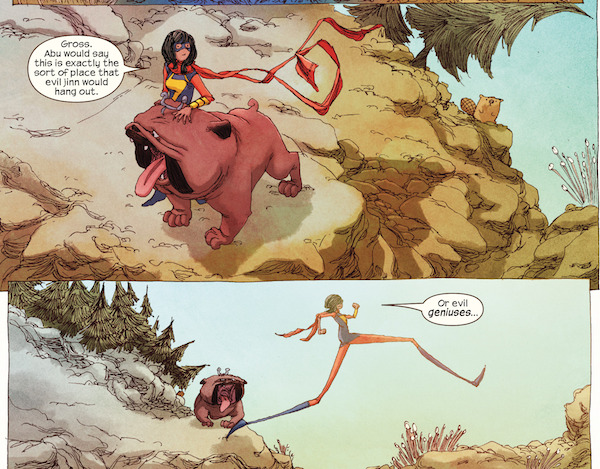
Superheroes were created pre-World War II as a kind of anti-fascist fascism—Superman is a conscious response to Nietzsche's Ubermensch, a figure adopted by Hitler. If Superman seems designed to beat the Nazis at their own force-worshipping game, though, Kamala plastered over Hitler's image seems like a much more direct refutation of Nazi ideology. You offer white supremacy and a dream of glorious war? We give you a girl with brown skin and friendly, stretchy superpowers who wants to help people. Whose side would you rather be on? And who's the real fascist—the person claiming to be anti-Hitler while smearing non-white people, or the Muslim woman of color?
It seems important, too, that Kamala is so young; superheroes are often billed as adolescent power fantasies, but Kamala is actually an adolescent. In the most recent story arc, she's working to save other kids from being exploited by a supervillain who uses their energy to power his inventions. The kids have a bad case of Stockholm syndrome, but she manages to convince them that the evil guy is in fact evil by pointing to her own confrontations with him. " . . . would the guy who saves the world really beat up a sixteen-year old girl and steal her dog?" she asks (did I forget to mention that Ms. Marvel has an adorable giant teleporting dog?) That seems like a pretty pointed question for the folks at the American Freedom Defense Initiative, too. Are all Muslim children evil? Are we supposed to hate and fear those kids, and their teleporting dogs as well? Or what?
Superheroes may be kind of silly and/or kind of awful in a lot of ways, but Ms. Marvel seems like a reminder that they can have value as well. Heroism can be a cover for thuggish worship of violence. But it can also mean responding to hate with bravery and love. Superheroes can be about worshipping the most powerful guy in the room as he stomps some other, less powerful schmo. But they can also be about the fact that you, over there, can be a hero—even if, or especially if, you don't conform to the American Freedom Defense Initiative's idea of what a hero should be (or, for that matter, to Hitler's).
And if superheroes can seems crudely nationalistic with their star-spangled tights, they can also sometimes lead us (by public transportation no less) to a better version of truth, justice, and the American way.

